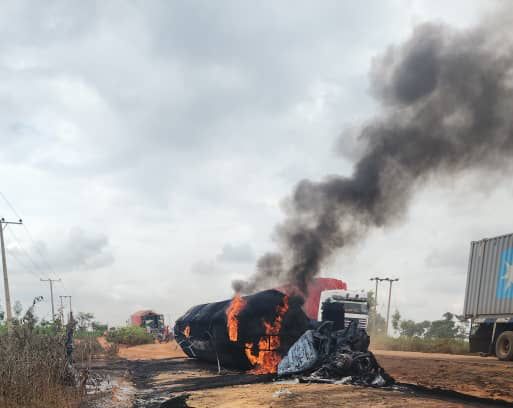Conficius (BC 551-BC479) is a celebrated Chinese philosopher and sage. His teachings, Confucianism, named after him, emphasise morality in governance, harmonious social relationships, righteousness, kindness, sincerity, integrity and demonstration of compassion by leaders.
Confucius’s wisdom is underscored by one of his thought-provoking pronouncements in the course of a tour of one of China’s regions. In the journey referenced, he came upon a community which was menaced by fierce tigers. The tigers were said to have killed, in one household, a grandfather, his son and his grandson at different occasions. In spite of this menace by ferocious tigers, members of the community stayed put.
A perplexed Confucius asked why members of the said community did not desert it for other safer havens. He was informed that there was a good government in the region. Reflecting on this quaint and bewildering phenomenon, Confucius concluded:”An oppressive government is more to be feared than a tiger”.
This remark was not only taken as a mark of Confucius’s profundity and wisdom, but it was considered as his larger criticism of harsh governments and his exhortation to rulers to reduce taxes and to treat their followers with compassion.
On average, in nearly every six months in Nigeria, trucks or tankers laden with Premium Motor Spirit (PMS) or petrol would collapse either due to our bad roads or the recklessness of their drivers. Impoverished villagers proximate to such collapsed tankers would rush to the accident scenes. They would proceed on scooping binges of the fuel oozing from the tankers.
Before long, the frenzy of scooping would ignite huge explosions which would consume the scoopers. In the wake of such explosions are charred bodies. Those who survive the incineration are maimed for their lives. They strut their villages like ghouls. Also properties, worth millions, are destroyed by the explosions.
This gory scenario played out at Essa community, near Baddegi, in Niger State, on Tuesday October 21st, 2025. A tanker, laden with petrol from Lagos, en route an unspecified destination in the North, collapsed due to the deplorable condition of the road at Essa. Villagers from communities neighboring Essa, joined their kits and kins and began to scoop fuel that gushed from the felled tanker. Three hours after, there was an explosion which killed not less than 24 people on the spot and injured scores.
This explosion is coming hot on the heels of similar ones at the Dikko Junction, Suleija, in Niger State, and that of Majiya community in Jigawa State. The two explosions occurred on 18th January 2025 and 15th October 2024 respectively. While 209 people were killed in the Majiya explosion, at least 86 lives were lost in the Dikko Junction explosion.
A peeved Corps Marshal of the Federal Road Safety Commission (FRSC), Shehu Mohammed, dismissed the Essa explosion as “a needless national tragedy born out of ignorance, greed, and disregard for safety warnings”.
While at first blush we are tempted to dismiss this tragedy as the doing of fatalistic, ignorant folks, possessed of a near-suicide complex, those who are humane, and who, therefore, are diminished even by the death of a fellow human, must pause and ask: why do these incidents occur and with such sad frequency?
Certainly, the National Orientation Agency (NOA) and the FRSC itself may have come short in effectively sensitising Nigerians about the dangers in scooping highly flammable petrol. But the frequency with which these accidents have occurred in recent times, the goriness which attend their aftermath (with charred remains being buried in mass graves and in the full glare of the public) should warn even the most fatalistic, foolhardy and greedy.
Thus, we must further ask, in the fashion of Confucius: why would ordinary folks go on a scooping binge of petrol knowing full well that their very lives are at stake? Why would folks from a State, such as Niger, that is richly endowed, succumb to a vocation that verges on suicide?
For Niger State, apart from having Nigeria’s largest landmass of 76,363 square kilometers, is home to four hydroelectric dams, namely: Zungeru, Kainji, Jebba and Shiroro. Its fertile land can be cultivated, end to end. Rice, sugar, sorghum, maize, peanuts, soya beans etc can be liberally cultivated here. Once upon a time, the Bacita Sugar Company and Jebba Paper Mill hummed and employed many Nigerians. It has Nigeria’s highest number of Shea butter trees. On account of the River Niger and sundry streams, it has fish in abundance.
If the resources and potentials of Niger State, and indeed others in the North where these explosions occur with abandon and frequency, were adroitly harnessed, one is certain that their citizens would not find recourse in scooping fuel, with all its dangers, to make a quick buck. Only a desperate and profoundly despondent person can trade his precious life for a few fistful of Naira.
And Nigerians have been pushed to this extreme, an extreme of poverty, as a result of which they lay little or no premium on their lives. Bad governance has birthed this unspeakable destitution. Bad governance has been visited relentlessly by successive governments ran by persons who are merely concerned with feathering their nests at the expense of the people they claim to govern.
The key is to get our priorities right, implement pro-people policies and to govern with compassion. Instead of expending billions of Naira on urban renewal and the construction of fly-over bridges with underpasses, our governments (federal, state, and local) should obsess themselves with fixing rural roads.
This will create viable linkages between the towns and villages and facilitate commerce and transportation of farm produce. They should focus on building and rehabilitating hospitals and schools. Health, as the time honored saying goes, is wealth. Education is the most potent and enduring form of empowerment.
They should bring information and digital technology to rural folks. That way, they can easily be galvanised and partake robustly in modern trends. Farmers should be incentivised with subsidised fertilisers, seedlings and pesticides. Mechanisation should replace our obsolete hoe-machete technology of farming.
Security should be prioritised so that farmers, and indeed all citizens, can carry on without let or hindrance. An environment should be created to enable small businesses to thrive, thereby creating jobs. Obnoxious and asphyxiating multiple taxations imposed cavalierly in the name of generating internal revenue should be done away with by our governments. Our highways should be fixed to check the frequency of accidents, including tanker ones.
These can be done, especially with increased revenue arising from the withdrawal of fuel subsidy. May we summon the will.
Nick Dazang is the Director of Voter Education and Publicity for the Independent National Electoral Commission (INEC) in Nigeria.






